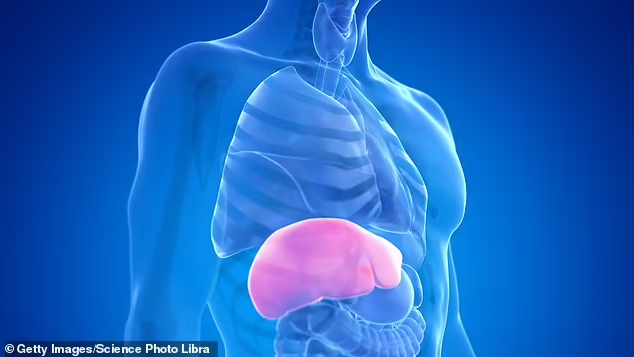Are your kitchen utensils killing you? Study finds link between popular cooking products and liver cancer risk
By
- Replies 1
In a previous article (will link), we discussed how using plastic containers to store your food and beverages can raise your risk of developing cancer.
While many people are astonished by this fact, did you know that some cooking utensils can also pose the same risk?
No need to take a double look, folks. Unfortunately, certain kitchenware and food packaging contain synthetic chemicals that can quadruple the likelihood of cancer development among individuals who are exposed to them.
The risk of non-viral hepatocellular carcinoma, a common liver cancer, has been discovered to be increased by 'forever chemicals' found in the aforementioned items, according to a study published by the University of Southern California (USC), in Los Angeles.
If you're wondering why scientists called these substances "forever chemicals," it's because they can take years to break down in the body or environment — meaning, whether or not they are eliminated, they may still have long-lasting impacts on a person who has been exposed to them.

The study suggested that certain cookware, like non-stick pans, contain harmful compounds that can increase your likelihood of developing cancer. Credit: Mishry.
Additionally, these compounds, which are known as Perfluooctane sulfonate or often referred to as PFOS, were said to be present in a wide range of products, including nonstick cookware, tap water, seafood, waterproof clothes, cleaning supplies, and even shampoo.
Dr Jesse Goodrich, a postdoctoral scholar at the USC, explained that PFOS is a subclass of PFAS, or per- and polyfluoroalkyl substances, which are linked to liver cancer.
'Liver cancer is one of the most serious endpoints in liver disease and this is the first study in humans to show that PFAS are associated with this disease,' she added.
The PFAS will typically reach the liver after ingestion. However, like many other toxic substances that the body eventually absorbs, the chemicals will become embedded in the liver and dramatically impair its functions.
The researchers also disclosed the methodology for the study, revealing that the team gathered data from the Multiethnic Cohort Study, which collected enormous amounts of medical data from people in Hawaii and Los Angeles.
From a pool of more than 200,000 participants, 50 were selected and matched with 50 others who did not acquire liver cancer.
Researchers examined blood samples from individuals who developed cancer prior to their diagnosis and compared them to a control group of people who never developed the disease.

The PFAS can accumulate in the liver and alter its functions. Credit: Getty Images/Science Photo Libra.
The USC Population and Public Health professor Dr Veronica Wendy Setiawan explained: 'Part of the reason there has been few human studies is because you need the right samples.'
'When you are looking at an environmental exposure, you need samples from well before a diagnosis because it takes time for cancer to develop.'
The results suggested that numerous types of chemicals were present in the bloodstreams of many of the individuals who did later acquire cancer. Higher levels also enhanced an individual's likelihood of developing cancer.
It was also found that those who were exposed to the toxins the most (10%) were 4.5 times more likely to develop cancer.
So, how can you avoid PFAS?
You can take the following actions to lessen your exposure to PFAS from common goods:
We should all be careful about the items we use on a daily basis! Be sure to carefully inspect any of your belongings for PFAS, PFC, fluoro, and PTFE, if you do find these ingredients in your belongings, please take the necessary actions like replacing that item with an item that does not contain these ingredients! For more information, watch the video below:
Credit: Facebook/DW Planet A
Stay safe out there, folks!
While many people are astonished by this fact, did you know that some cooking utensils can also pose the same risk?
No need to take a double look, folks. Unfortunately, certain kitchenware and food packaging contain synthetic chemicals that can quadruple the likelihood of cancer development among individuals who are exposed to them.
The risk of non-viral hepatocellular carcinoma, a common liver cancer, has been discovered to be increased by 'forever chemicals' found in the aforementioned items, according to a study published by the University of Southern California (USC), in Los Angeles.
If you're wondering why scientists called these substances "forever chemicals," it's because they can take years to break down in the body or environment — meaning, whether or not they are eliminated, they may still have long-lasting impacts on a person who has been exposed to them.
The study suggested that certain cookware, like non-stick pans, contain harmful compounds that can increase your likelihood of developing cancer. Credit: Mishry.
Additionally, these compounds, which are known as Perfluooctane sulfonate or often referred to as PFOS, were said to be present in a wide range of products, including nonstick cookware, tap water, seafood, waterproof clothes, cleaning supplies, and even shampoo.
Dr Jesse Goodrich, a postdoctoral scholar at the USC, explained that PFOS is a subclass of PFAS, or per- and polyfluoroalkyl substances, which are linked to liver cancer.
'Liver cancer is one of the most serious endpoints in liver disease and this is the first study in humans to show that PFAS are associated with this disease,' she added.
The PFAS will typically reach the liver after ingestion. However, like many other toxic substances that the body eventually absorbs, the chemicals will become embedded in the liver and dramatically impair its functions.
The researchers also disclosed the methodology for the study, revealing that the team gathered data from the Multiethnic Cohort Study, which collected enormous amounts of medical data from people in Hawaii and Los Angeles.
From a pool of more than 200,000 participants, 50 were selected and matched with 50 others who did not acquire liver cancer.
Researchers examined blood samples from individuals who developed cancer prior to their diagnosis and compared them to a control group of people who never developed the disease.
The PFAS can accumulate in the liver and alter its functions. Credit: Getty Images/Science Photo Libra.
The USC Population and Public Health professor Dr Veronica Wendy Setiawan explained: 'Part of the reason there has been few human studies is because you need the right samples.'
'When you are looking at an environmental exposure, you need samples from well before a diagnosis because it takes time for cancer to develop.'
The results suggested that numerous types of chemicals were present in the bloodstreams of many of the individuals who did later acquire cancer. Higher levels also enhanced an individual's likelihood of developing cancer.
It was also found that those who were exposed to the toxins the most (10%) were 4.5 times more likely to develop cancer.
So, how can you avoid PFAS?
You can take the following actions to lessen your exposure to PFAS from common goods:
- Food - Instead of eating fast food or takeaway, choose home-cooked meals instead. Avoid using non-stick cookware as well.
- Clothes - Look for labels saying ‘PFAS- or PFC-free.’
- Cosmetics - Avoid products that have ‘fluoro’ or ‘PTFE’ in their names as they contain chemicals (check the ingredient list). Do not use dental floss that has a PTFE covering.
We should all be careful about the items we use on a daily basis! Be sure to carefully inspect any of your belongings for PFAS, PFC, fluoro, and PTFE, if you do find these ingredients in your belongings, please take the necessary actions like replacing that item with an item that does not contain these ingredients! For more information, watch the video below:
Credit: Facebook/DW Planet A
Stay safe out there, folks!







